Education
“Our goal is to give students the tools they need to solve real-world problems using innovative techniques and creative approaches.” – Damian Brady
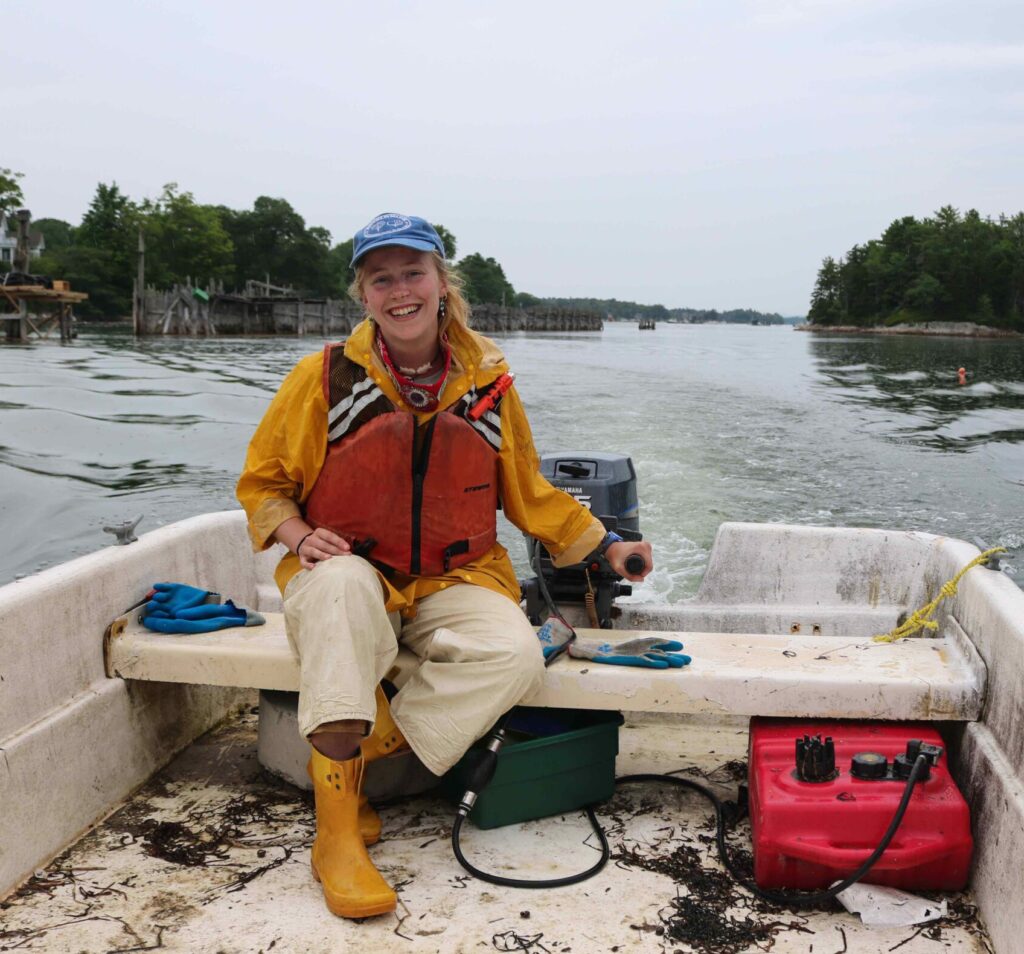
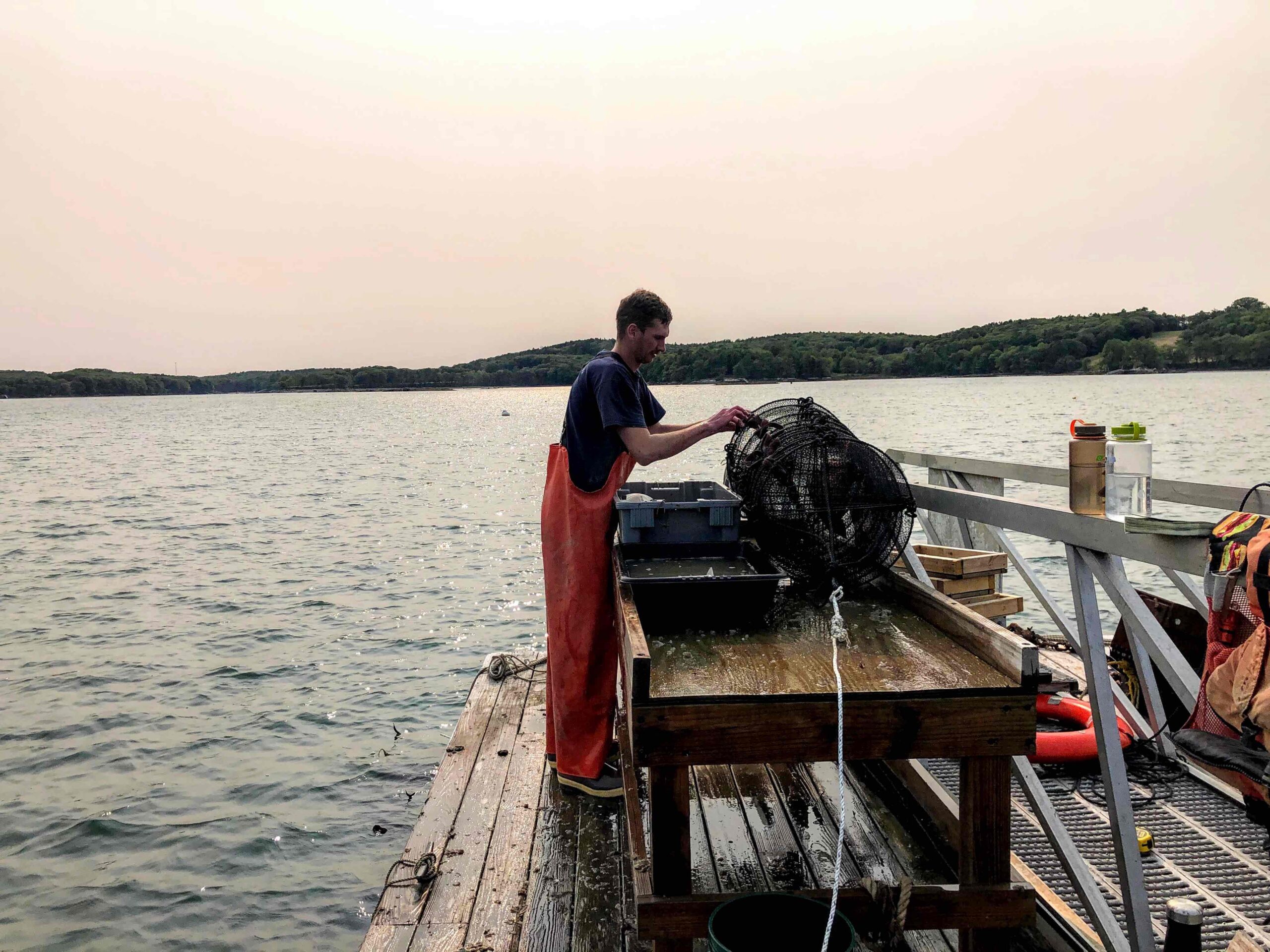
Internships
Please reach out to Damian and Elisabeth to see what internship options are available this summer at the Darling Marine Center.
Student internships are field-intensive aquaculture and fisheries experiences. Students will get a transdisciplinary experience that includes: deployment of oceanographic equipment, laboratory analysis, shellfish growth and feeding trials, lease site maintenance, analyzing remote sensing imagery, and applying numerical models.
Students have opportunity to develop industry relevant skills including: laboratory analyses, scientific diving, small-boat operation, and computer programing/data analysis.
Note: The dormitory facilities at the Darling Marine Center will not be available. And our lab follows all University of Maine, State of Maine, and CDC guidelines regarding COVID-19. We encourage students who live in the mid-coast, or can find alternative accommodations, to reach out for internships funded through Maine Sea Grant, the Aquaculture Research Institute, and USDA.
Undergraduate Courses
Our lab is part of the field-intensive Semester By the Sea program at the Darling Marine Center. SBS is a hands-on residential program with courses ranging from marine ecology, fisheries science, microbiology, and scientific diving. This fall semester program allows students to immerse themselves in the study of marine systems.
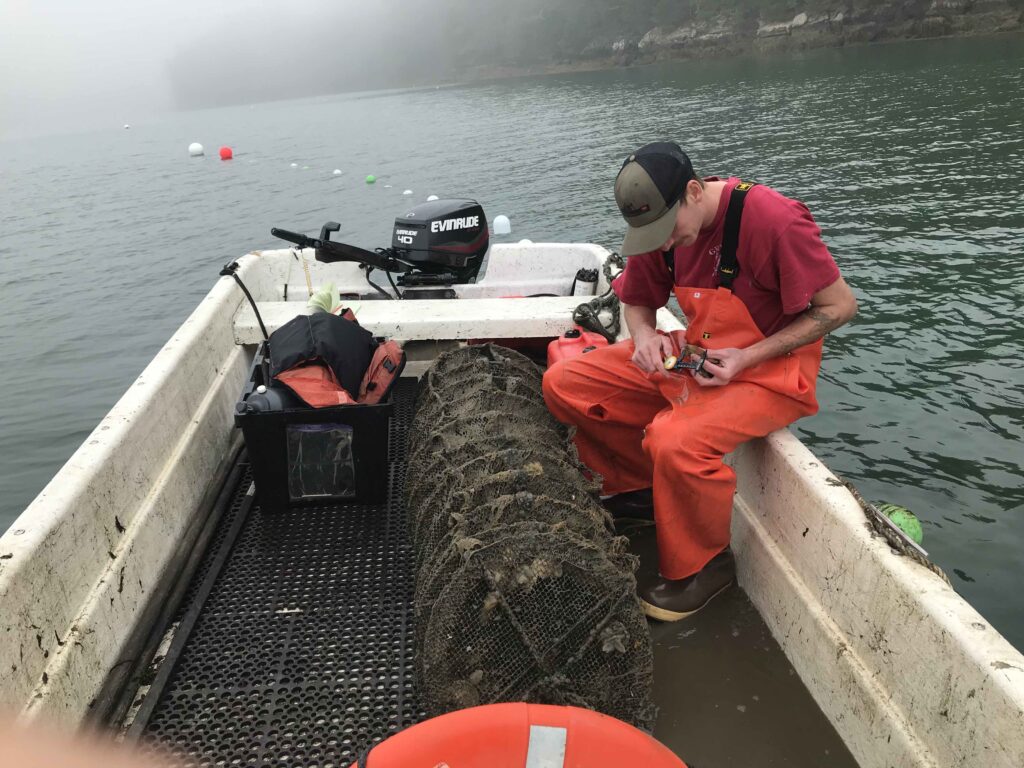
Estuarine Oceanography
SMS 484
The course examines the principles of oceanography as seen in estuaries, with emphases on land-sea interactions and human impacts. We address how geomorphology, rivers, tides, and human alterations control the physical and biological properties of estuarine water column and benthic habitats. Fieldwork in mid-coast Maine estuaries includes visits to various habitat types, especially those with human impacts, and hydrographic surveys that use various water, sediment and biota samplers, field sensors, laboratory and modeling approaches. Students will emerge with the environmental context that controls growth of estuarine organisms – both wild and cultured. 4 Credits.
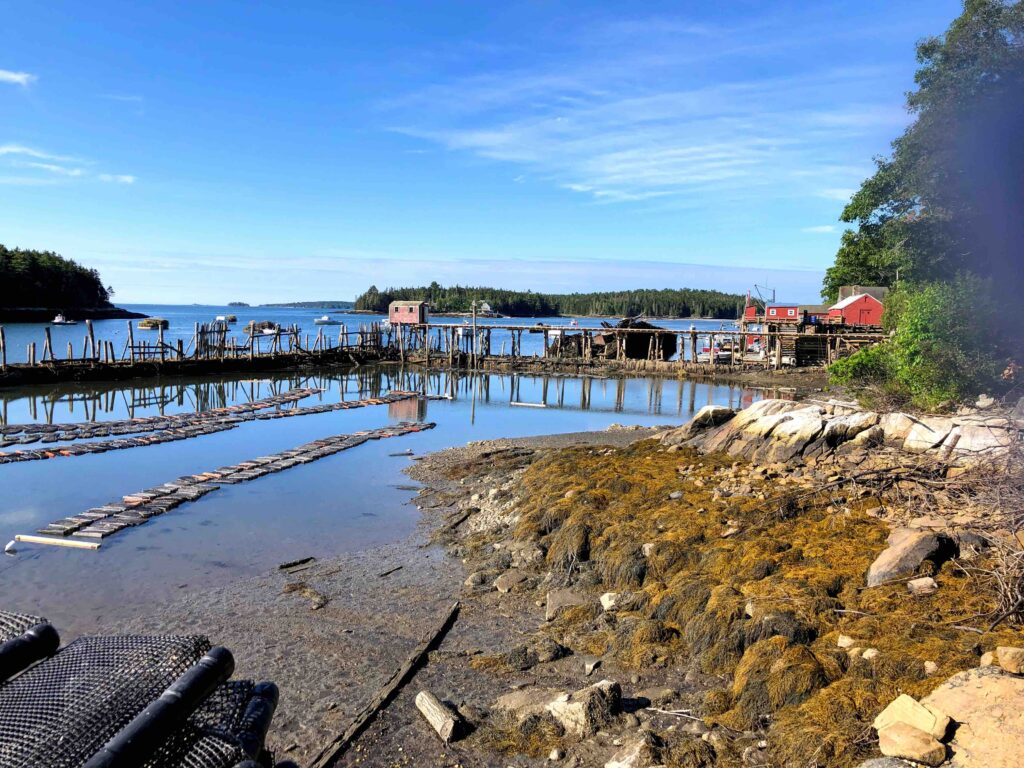
Aquaculture in Coastal Maine
SMS 491
Maine leads the country in marine aquaculture production. Finfish, bivalve, and macroalgae aquaculture is expanding rapidly along the coast of Maine. In this course, we use Maine as a case study to understand evolving aquaculture methods, technology, interactions with the environment, and aquaculture’s role in global food systems.
Graduate Students
Courses
We offer a variety of independent study opportunities with students to focus on specific topics on aquaculture and fisheries including spatial data analysis, bivalve growth modeling, global bivalve aquaculture, kelp carbon sequestration, and water quality modeling.
Research
Our funding is provided from a variety of agencies including National Science Foundation, United States Department of Agriculture, National Sea Grant, NOAA Saltonstall-Kennedy, Northeast Regional Association of Coastal Ocean Observing Systems (NERACOOS), and others.
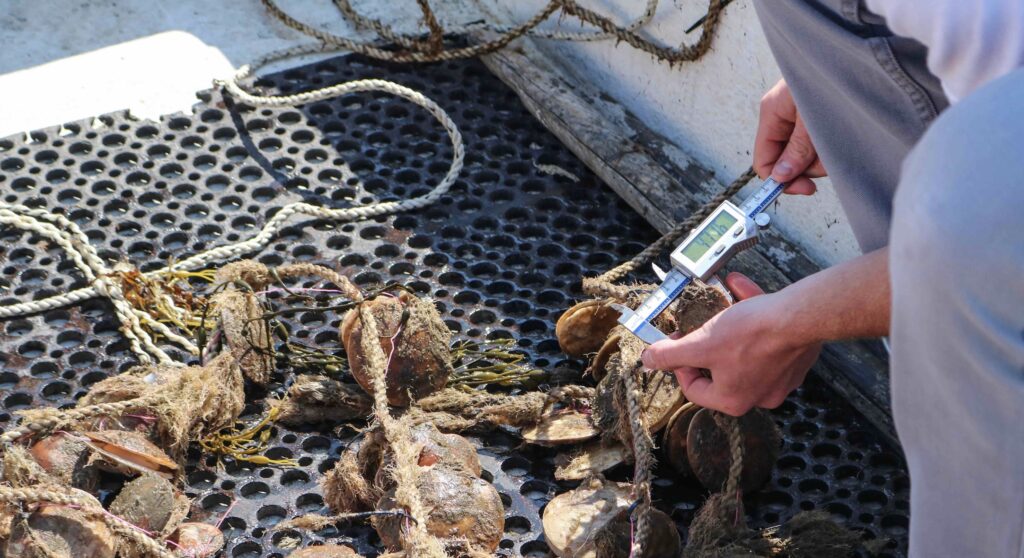
Start your graduate career and join our team!
We invite you to study the interactions of floating offshore wind energy with marine ecosystems and fisheries in the Gulf of Maine and California as a Master’s or Ph.D. student (in Marine Biology or Oceanography).
